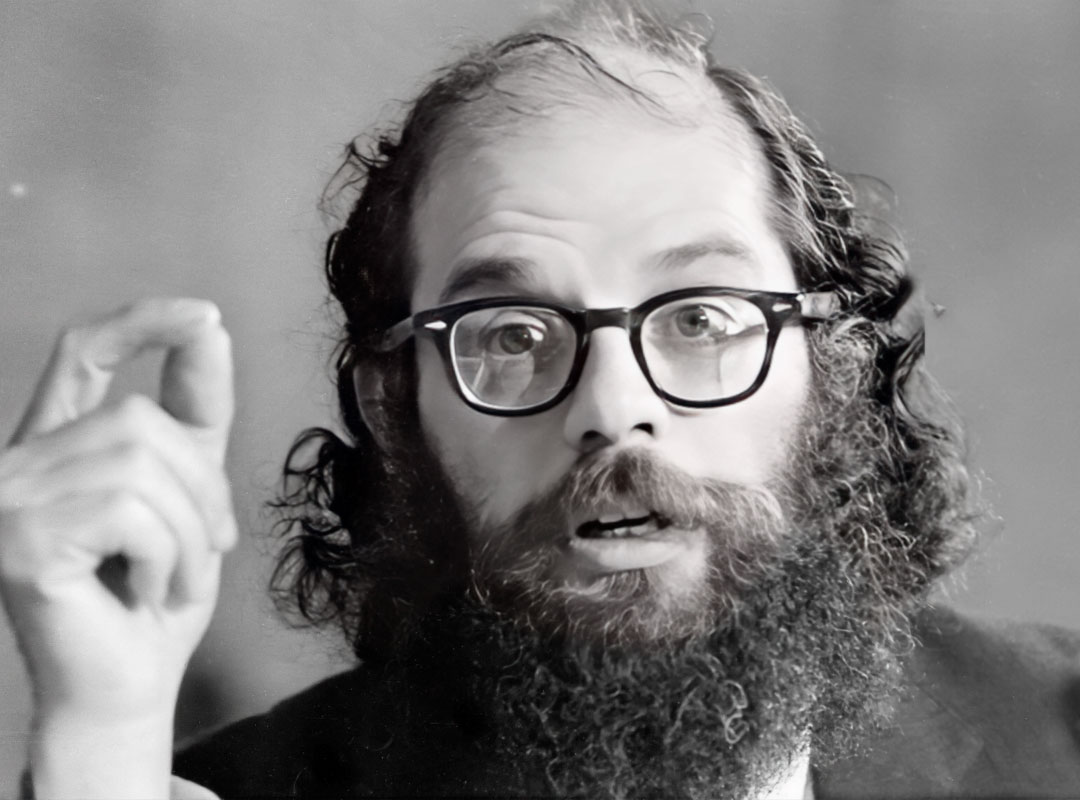Carolyn Mary Kleefeld – Contact Us
Please fill out form as completely as possible so we can contact you regarding your request.

Photo: Associated Press
The late, widely acclaimed poet and writer Allen Ginsberg was the cousin of our beloved friend, Dr. Oz Janiger, and Allen used to stay with Oz whenever he was visiting Los Angeles, so Carolyn and I spent some time with him, and I interviewed him for my book Mavericks of the Mind.
Along with Jack Kerouac and William Burroughs, Ginsberg was part of a core group of experimental writers that came to be known as the “Beat Generation,” and he received numerous honors and awards, including the National Book Award for Poetry, and a Guggenheim Foundation Fellowship.
Ginsberg is probably best known for his revolutionary poem Howl, which caused such a stir when it was first published in 1956 that it was seized by the San Francisco police and U.S. Customs. The controversial poem became the subject of an obscenity trial because it described homosexual acts, at a time when those acts were illegal in every state, and it went on to become one of the most widely read and translated poems of the 20th century.
Carolyn used to send some of her manuscripts to Allen when he lived in New York, and one night when we all had dinner at Oz’s home Carolyn showed Allen the book that she was currently working on, The Alchemy of Possibility. Allen returned it to Carolyn with edits and ideas, and she was able to use some of them after “scrutinizing what fit” for her “as the author, and yet much respecting Allen.”
Interestingly, our friends Jerry and Estelle Cimino have documented much of Allen’s work, and have an extensive collection of Beat memorabilia, including original manuscripts, rare books, letters, personal effects, and cultural ephemera at The Beat Museum in San Francisco.
Here is an excerpt from my conversation with Allen in Mavericks of the Mind:
David: What was is that originally inspired you to start writing poetry?
Allen: It’s a family business. My father was a poet, his Collected Poems were posthumously published. . .
David: Was it something that you always knew you were going to do?
Allen: No, but I always wrote poetry; since I was a kid I knew poetry. My father taught high school and college, so I knew a lot of Milton, Poe, Shelley, and Blake when I was five, six, seven years old. And I memorized it, or it just sort of stuck in my head. I started writing when I was maybe fifteen, or younger, but I never thought of myself as a poet. I just thought that it was something you did on the side, like my father had done. But then, when I met Jack Kerouac at the age of seventeen, I realized that he was the first person I had met who saw being a writer as a sacramental vocation. Rather than being a sailor who wrote, he was a writer who also went out on ships. That changed my attitude towards writing, because now I saw it as a sacred vocation.